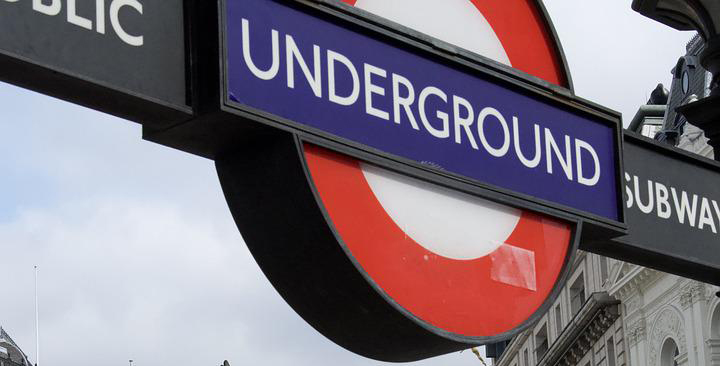Public transport post pandemic next steps

|
| Article first publshed on ICE News site on May 16 as 'No turning back for public transport, panel debate concludes' written by Ana Bottle, assistant digital content editor at ICE |
Contents |
[edit] First Next Steps Programme convenes debate on public transport issues post-pandemic.
An ICE-led panel debate on public transport funding has concluded that there’s no returning to pre-pandemic ways of working. Part of the ICE’s new Next Steps Programme, the debate discussed how to recover the public transport networks that suffered due to Covid-19.
"Reverting to pre-Covid models is not possible but cuts would roll back years of progress,” said Jagoda Egeland, advisor to the secretary-general of the International Transport Forum and one of the panellists.
“We need to adopt more sustainable funding models linked to sustainable urban development."
The panel, which included former transport minister Stephen Hammond, said that public transport providers must understand the changes in demand and what currently drives people to use this service.
Providers must then rebalance timetables, service provision and price accordingly so that the service is affordable and reliable.
[edit] How has public transport use changed due to Covid-19?
Cities around the world experienced up to a 90% decrease in public transport use due to restrictions imposed to limit the spread of the virus.
Since these restrictions were lifted, many workers continue to work remotely, at least for part of the week.
This new trend of hybrid working has seen commuter demand concentrated on Tuesday to Thursday, with Mondays and Fridays typically experiencing lower use.
So far, operators have relied on emergency funding and subsidies from governments to adapt to changes in demand.
As priorities shift, a more sustainable funding model for public transport needs to be identified and implemented, as ICE previously stated.
[edit] The knock-on effect
The public transport funding crisis has accelerated and exacerbated challenges around service provision that existed before the pandemic.
“Public transport systems are enablers of social and environmental cohesion. It’s not a question of whether support should continue but more the structure of how that support should happen,” Jonathan Spruce, ICE trustee for policy and external affairs, said at the debate.
Without a way to sustainably fund public transport, other long-term challenges become increasingly difficult to tackle, the panellists said.
These include:
- Being fit for purpose amid changes to how people work,
- Decarbonising transport and help reach net zero,
- Boosting green economic growth,
- Addressing inadequate connectivity in rural communities, and
- Over-relying on farebox revenue.
[edit] What can be done?
Without further government funding, it’s important to come up with different strategies.
The panellists argued for a new understanding of what public transport should provide.
Rather than returning to the pre-pandemic model, new funding frameworks need to be put in place.
New policies could include:
- Congestion or road user charging,
- Workplace and/or retail parking levies,
- Land value capture, and
- Transport networks with more active travel provision and shared transport options.
[edit] Local powers and funding
The panellists also noted that long-term devolved funding and powers can be a solution to the challenge.
Local transport operators better understand what their communities need. Therefore, devolved revenue could help to directly improve these services.
By setting a clear vision of what the networks should do, locally and nationally, it will be easier to identify how to best provide, fund, deliver, operate and maintain them.
Above all, the debate concluded that the problem mustn’t be treated with short-term measures – there needs to be a strategy to fix it for the long-term.
--ICE
[edit] Related articles on Designing Buildings
Featured articles and news
Scottish parents prioritise construction and apprenticeships
CIOB data released for Scottish Apprenticeship Week shows construction as top potential career path.
From a Green to a White Paper and the proposal of a General Safety Requirement for construction products.
Creativity, conservation and craft at Barley Studio. Book review.
The challenge as PFI agreements come to an end
How construction deals with inherited assets built under long-term contracts.
Skills plan for engineering and building services
Comprehensive industry report highlights persistent skills challenges across the sector.
Choosing the right design team for a D&B Contract
An architect explains the nature and needs of working within this common procurement route.
Statement from the Interim Chief Construction Advisor
Thouria Istephan; Architect and inquiry panel member outlines ongoing work, priorities and next steps.
The 2025 draft NPPF in brief with indicative responses
Local verses National and suitable verses sustainable: Consultation open for just over one week.
Increased vigilance on VAT Domestic Reverse Charge
HMRC bearing down with increasing force on construction consultant says.
Call for greater recognition of professional standards
Chartered bodies representing more than 1.5 million individuals have written to the UK Government.
Cutting carbon, cost and risk in estate management
Lessons from Cardiff Met’s “Halve the Half” initiative.
Inspiring the next generation to fulfil an electrified future
Technical Manager at ECA on the importance of engagement between industry and education.
Repairing historic stone and slate roofs
The need for a code of practice and technical advice note.
Environmental compliance; a checklist for 2026
Legislative changes, policy shifts, phased rollouts, and compliance updates to be aware of.




















